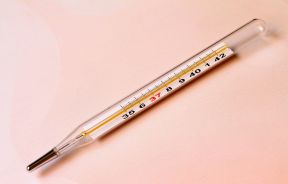Erin Brockovich Says Essure, Permanent Form Of Birth Control, Perforates Women’s Organs

The Essure System is a permanent and non-surgical sterilization system approved by the Food and Drug Administration in 2002. Yet some women say that it causes severe reactions. Erin Brockovich, the famed consumer advocate, has launched a grassroots campaign (complete with website) to mobilize women and collectively petition to take the birth control system off the market.
“There's something wrong with the device, in my opinion," Brockovich told ABC News. "It's a form of permanent birth control, and women's organs are being perforated … I don't think it's safe.”
How does it work?
The Essure System --- essentially a simple nickel coil --- works by blocking a woman's fallopian tubes so that sperm cannot fertilize her eggs. It is meant to be a non-surgical and permanent alternative to tubal ligation (when a woman's 'tubes are tied.') Instead of surgical procedure requiring incisions or general anesthesia, though, with the Essure System a doctor uses a special catheter to thread the coils through the vaginal opening. Once implanted, scar tissue forms around the coils. It is this build-up of scar tissue, then, that obstructs sperm from passing through the fallopian tubes.
The FDA warns that a woman cannot rely on the Essure system to prevent pregnancy immediately. After the coil is implanted, she must use another type of birth control as back-up until a three month check-up when an x-ray can confirm her fallopian tubes have been successfully blocked. After this, a woman may stop using other forms of birth control. Women who relied on the device for one year reported no pregnancies in one clinical study, the FDA reportes, and in another study, women who relied on the device for two years reported the same: no pregnancies.
Yet, pregnancies are not the only issue when it comes to this product. “I have been amazed at the number of women who have written to me with their stories and the serious medical issues they are having due to the Essure implant," Brockovich states on her website. Women have told of debilitating headaches caused by the device, nausea, allergic response to the nickel (the metal composing the device), need for hysterectomies, and colon perforation due to movement of the device after implantation. The FDA also tracks adverse event reports for approved products on its website and in the case of Essure, 800 women or their doctors have filed adverse event reports since 2004.
“It's ridiculous that at any level we try to defend this. If 30 women did suffer harm for unknown reason, we'd investigate,” Brockovich told ABC News. “We have thousands injured.” Requesting that women share their stories --- and those posted on her website are hair-raising --- Brockovich hopes to create a movement that will take the product off market while also finding a remedy for those who have been harmed.
Published by Medicaldaily.com



























